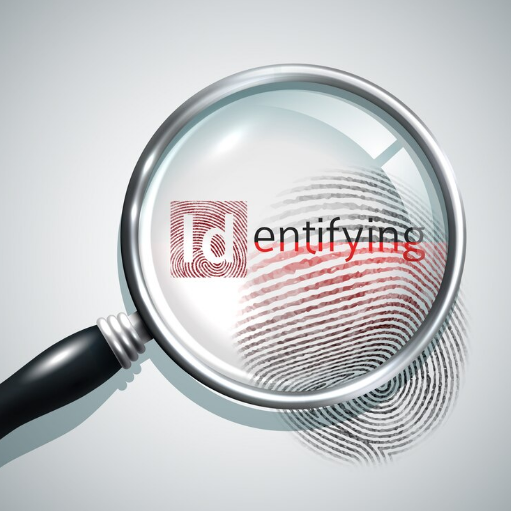A criminal background check conducted on a fingerprint is a valuable tool to screen job applicants for federal criminal records. A comprehensive name-based background check from a PBSA-accredited screening agency can provide more accurate and compliant information.
Accuracy
Fingerprinting is an excellent tool for ensuring the accuracy of criminal background checks. Unlike dates of birth or social security numbers, fingerprints are unique to each individual, making them highly effective for sorting through massive national and local criminal databases. However, fingerprints can be misleading in their accuracy if used alone because criminal records don’t always include a subject’s fingerprint, and a candidate’s record may be missed. For this reason, best practices recommend using a comprehensive background check service that combines fingerprinting with name-based searches. This allows for more thorough research at the originating court level, improving the overall accuracy of a background check report. Furthermore, CRAs can incorporate credit and drug screening and verification of education, professional, and employment status into their criminal background checks. Combined with fingerprinting, this creates a more complete picture of your candidate while remaining compliant with FCRA regulations. This can help your organization make better hiring decisions that minimize risks and liability. This includes compliance with anti-discrimination laws and the Fair Credit Reporting Act (FCRA). This is especially important when dealing with sensitive job roles such as banking or caring for children or older adults.
Flexibility
Unlike name-based background checks, fingerprinting can reveal criminal records — such as arrests and dispositions – that aren’t always reported by local, county, or state police departments to the FBI. This is particularly important for jobs that require security clearance or positions in which a candidate will be responsible for the safety of vulnerable individuals. However, even with the best efforts of local and state law enforcement agencies, criminal fingerprint records are often inconsistent, incomplete, and outdated. Law enforcement officers are busy making a living catching bad guys and may not have the time to report arrests to the FBI accurately.
Choosing a private consumer reporting agency (CRA) for fingerprinting and criminal background checks service can help alleviate these concerns. CRAs search directly with federal, state, and local court and records repositories to find comprehensive and up-to-date data for your screening reports. And, because CRAs are subject to the Fair Credit Reporting Act, they must follow strict procedures to ensure accuracy and protect against violations that could lead to private lawsuits or fines by government regulators.
Turnaround
When there are positions to fill, companies need the results of fingerprinting and criminal background checks as quickly as possible. Otherwise, productivity suffers, deadlines may be missed, and revenue declines. This is especially true when employees have critical roles in the workplace. Fingerprint background checks are more reliable than name-based searches because they can reveal pending charges, arrests, and convictions. However, it is essential to note that a criminal search conducted via fingerprints will often only include information submitted to the FBI from state (and sometimes local) agencies and judicial offices. These results can be incomplete if a jurisdiction hasn’t consistently reported arrest and disposition data. Other background checks that require more in-depth research at the originating court can also add to turnaround time, such as verifications of employment and education. These types of searches typically take longer because they rely on the responsiveness and availability of third parties, such as past employers and universities. Still, many such searches can be completed in less than 24 hours thanks to convenient centralized databases for this type of information.
Privacy
Criminal background checks conducted by comparing fingerprints against state and federal databases are more reliable than searches using names or dates of birth because, unlike birthdays or names, fingerprints are unique to each person. Therefore, it’s rare for a false positive to be returned when comparing an applicant’s fingerprints to the database. In addition, a fingerprint-based search will often return additional records that might not be available with a name-based search, such as juvenile records or some misdemeanor and felony convictions. For this reason, many employers consider fingerprinting services an essential part of their overall vetting processes, especially for positions that require a high level of trust, like security-cleared roles or those working with the elderly, ill, or children. Also, choosing a fingerprinting provider will help speed things up if you want to reduce turnaround times. This method captures a candidate’s fingerprints digitally, without the need for ink, and allows results to be easily accessed within your background screening portal.
Cost
Despite their reputation for accuracy, fingerprint-based background checks often need to be more accurate and complete. Law enforcement agencies are prone to errors when collecting and reporting data to the FBI, and fingerprint-based searches of the IAFIS database return all records that match an applicant’s fingerprint, regardless of whether those records are valid or not. This creates an inaccurate picture of your candidate and can lead to adverse employment decisions that may violate Title VII of the Civil Rights Act. In addition, fingerprinting can be expensive and requires candidates to visit an authorized center in person to have their prints inked or scanned. It’s also important to note that federal and state fingerprint-based checks only cover an individual’s record in that jurisdiction since states have the constitutional right to withhold information from the FBI under the 10th Amendment. To ensure the most comprehensive and accurate results, employers should conduct additional background checks using a qualified CRA to verify other records, including education, employment, professional licensing,







